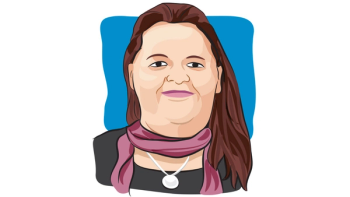
Selecting Therapy Through Multiple Lines in WM
Transcript:
Steven P. Treon, MD, PhD: Treatment tends to change in the second line for many patients because they’ve been exposed to particular agents in the first line. If they’ve had a long response, we will sometimes go back and reuse that therapy. But otherwise, more and more these days if the patient hasn’t seen a BTK inhibitor, we tend to go to a BTK inhibitor for the treatment of Waldenström macroglobulinemia. And this is really where the field has changed considerably, because in the past we either tried to recycle frontline drugs or use an alternative frontline agent, but now more and more, we’re resorting to the use of BTK inhibitors because the number of prior lines of therapy doesn’t make a difference.
Whether a patient is relapsing after a response or was refractory to that frontline therapy doesn’t appear to make a difference. So for all these reasons we know that BTK inhibitors represent very effective targeted therapy in the treatment of Waldenström macroglobulinemia. And this is really becoming more and more now the mainstay of relapsed — at least first relapsed therapy — in Waldenström macroglobulinemia.
I think it’s really important when one looks at a patient with Waldenström macroglobulinemia that you keep the sequencing in mind. Some drugs that we use sometimes will affect the stem cells, and so it becomes harder to be able to give a particular therapy. The use of Rituxan is also something that we’re very concerned about because IgA and IgG levels can go down. These are the good antibodies that protect against infection. And so particularly with reusing rituximab, one can see that these levels go down so much so that the patient has recurring infections, and many times we have to give replacement therapy with intravenous immunoglobulin, giving that back because the good cells have gone away and so has the IgA and IgG.
So in many of our patients we tend to spare now the use of ongoing Rituxan or maintenance Rituxan therapy. It’s not to say that we wouldn’t give maintenance Rituxan, but we might be more willing today to cut off that maintenance earlier than we would have in the past knowing what we see with IgA and IgG levels going down.
Quality of life is very important. I think it’s important to keep in mind both the short-term side effects of therapy as well as the long-term ones. When we use proteasome inhibitors, we are very concerned about the neuropathy that we’re seeing, and many times the neuropathy resulted in a side effect that was permanent for some patients. And debilitating in the sense that if you were somebody who relied on your feet or your fingers to be able to do your job, which is most of us, using a proteasome inhibitor, particularly in the past like using bortezomib, was oftentimes problematic.
Looking at the immune system, many of the drugs that we used to use in the past also compromise the immune system, and patients ended up with recurring sinus and bronchial infections. We also are concerned about secondary malignancies. Alkylators that we used a lot in the past could set patients up for either secondary malignancies or myelodysplasia where the bone marrow becomes injured. And this is why quite honestly seeing the evolution today to new drugs, particularly the BTK inhibitors, is very exciting for us because a lot of the problems that we used to see with our therapeutics in the past have been overcome now with these new drugs that represent really targeted therapy for this disease.
Transcript Edited for Clarity




